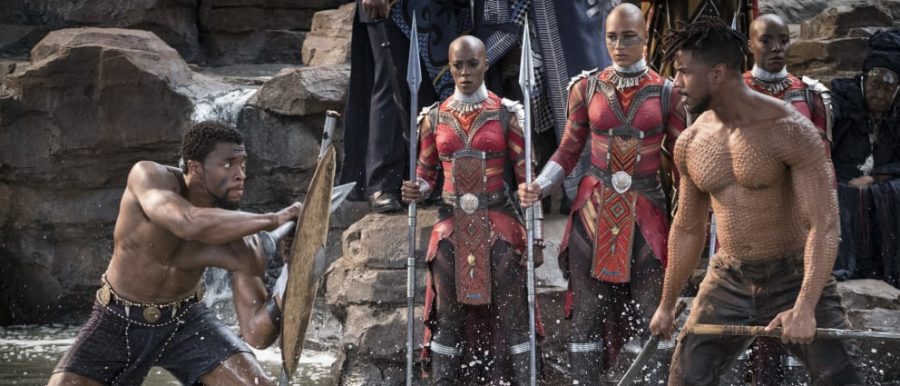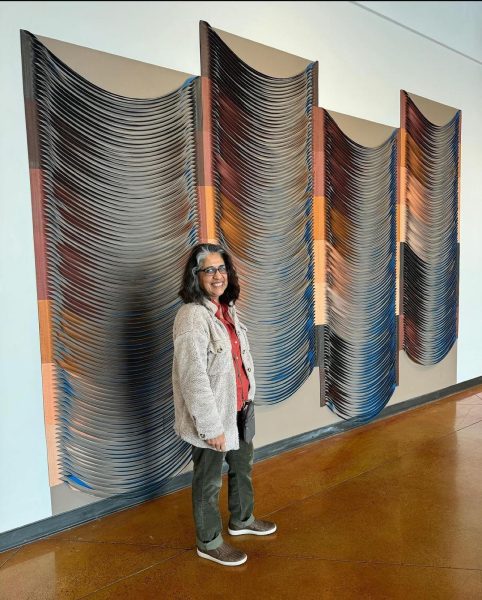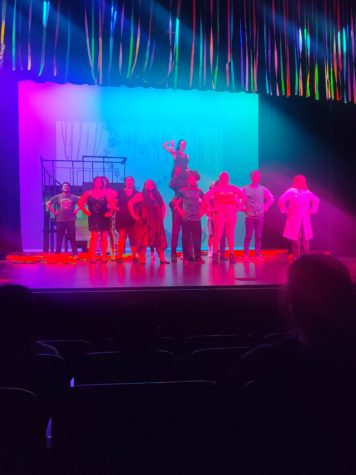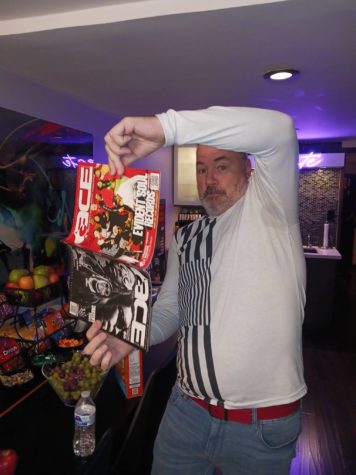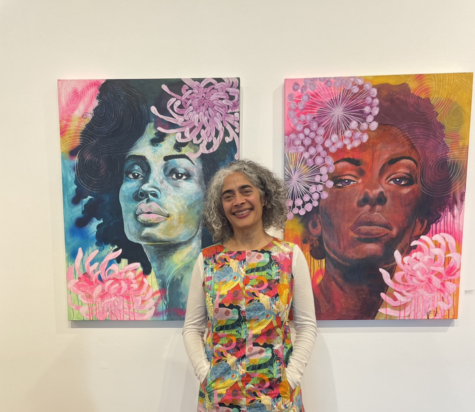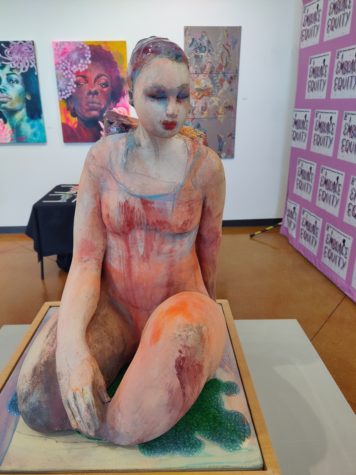Black Panther Dazzles
March 12, 2018
This review contains mild spoilers.
“Black Panther” opened Feb. 16 to rave reviews and tremendous box office success. As the eighteenth film in the Marvel Cinematic Universe, this isn’t terribly shocking.
The movies produced by Marvel Studios have a reputation for being surprisingly well constructed for being based on comics, and this is coming from someone who reads and collects them. “Black Panther,” however, is different in one key way: it’s the first of eighteen films in the series to feature a predominantly black cast. It’s also one of the series’ best.
Directed by Ryan Coogler (“Fruitvale Station”), Black Panther does a lot very well. Chadwick Boseman returns to play T’Challa, the Black Panther, in his second MCU appearance (first showing up up in “Captain America: Civil War”), where he returns to the fictional nation of Wakanda to be crowned king after the events of Civil War.
Wakanda plays a huge role in the film as a hidden nation built on top of a deposit of Vibranium, a fictional metal with almost magical properties, and untouched by war or colonialism. Much of the movie revolves around the Black Panther’s internal conflict deciding how to run his country – does he keep it hidden, or use his resources to aid countries in need?
The supporting cast is full of strong and likable characters. Black Panther’s sister, Shuri (Letitia Wright), is a teenage genius responsible for much of the Afrofuturist tech seen throughout the film. She serves as comic relief for the most part, and has some of the best lines in the film. Nakia (Lupita Nyong’o) and Okoye (Danai Gurra) round out the main group and serve as Black Panther’s love interest and leader of the royal guard respectively. Everett Ross (Martin Freeman) and Ulysses Klaue (Andy Serkis) play major roles after also appearing in Civil War.
Perhaps the most interesting character in the film is the antagonist, Erik Killmonger, played by Michael B. Jordan. Raised in Oakland by a Wakandan spy, he’s radicalized after his father, Black Panther’s uncle, is killed by the former king. A rightful heir to the throne, Killmonger challenges the Black Panther for the right to be king in order to use Wakanda’s resources to arm the people of oppressed nations to revolt and take power.
The changing of Killmonger’s hometown to Oakland from Harlem made the character easier to relate to as a Bay Area native, and serves as a nod to the director’s origins. Despite being having a sensible, if radical motivation and some of the film’s best lines, his character suffers from being a villain in a comic book movie, being violent and mean at every step in order to establish that he is in fact the bad guy.
From a visual standpoint, this movie looks great. The costumes, sets, and effects are all very vibrant, and the Wakandan technology and architecture is beautifully designed, perfectly infusing African aesthetics and science fiction. The Afrofuturist elements present in the film were fantastic, the standouts for me being the holograms formed using Vibranium sand that could be picked up and manipulated.
Unfortunately, some of the action scenes suffered from awkward camera angles and cuts that made everything seem strangely weightless or floaty. Additionally, some of the special effects and CGI looked less than stellar, a particular rhino in the first act looking very out of place among the characters.
While there is certainly a lot of hype surrounding the film, for good reason of course, this is another Marvel Studios film, and thus, isn’t anything particularly mind-blowing or thought provoking. While having elements and themes that suggest a deeper reading, it’s hard to overlook the fact that it was made by Disney. What Black Panther succeeds in doing is being a great super hero movie, in line with the quality of the other entries in the MCU, bringing diversity to the super hero action genre, and getting people talking about how great it does both.
One last thing I have to add as a comic book guy: please try the comics if you like this movie! The current Black Panther run is written by famed African-American author Ta-Nehisi Coates, and is considered to be one of the character’s best. The collection of the first four issues also contains the first appearance of Black Panther in Fantastic Four from the 60s. Support your local comic shop!

